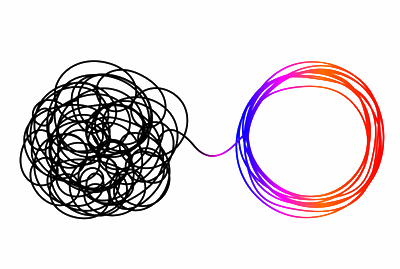 When the past keeps affecting your now!
When the past keeps affecting your now!
Are you avoiding certain situations or people because they trigger uncomfortable thoughts or feelings?
The symptoms of trauma can vary from flashbacks of the event that seem to come out of nowhere, to disturbing dreams, and to being on edge and nervous much of the time.
 EMDR stands for…
EMDR stands for…
EMDR is short for Eye Movement Desensitization and Reprocessing therapy.
By activating the brain’s natural ability to process life events through dreams, EMDR allows the brain to integrate or digest a disturbing memory. This innate process can be stimulated, while awake, through guided eye movements or by bilateral tapping.
The eye movements are tied to the dream state’s rapid eye movements (REM sleep). What is useful is incorporated and what is useless is discarded. Old negative beliefs are replaced with positive beliefs about yourself. This process allows you to function more easily in the world.
EMDR doesn’t require you to describe your trauma if you don’t want to. The guided process will still work without specific details.
 EMDR has a proven track record!
EMDR has a proven track record!
Through extensive research, EMDR has proven to be a best-practice treatment for PTSD, anxiety, and depression (according to the Substance Abuse and Mental Health Services Administration which is an agency of the U.S. Department of Health and Human Services).
Large traumas experienced from car accidents, abuse, divorce, etc. can be effectively treated with EMDR. It is also useful for treating smaller traumas, such as elementary school bullying or humiliation, unstable home life, or having overly critical parents.
 Meet Steve…
Meet Steve…
Four years ago, Steve went through a hard divorce. Things about the divorce kept plaguing his current life.
He found it hard to trust people, mainly his current girlfriend. He was becoming angry and jealous over small things like her not telling him she was going to hang out with some coworkers.
He figured out that she was triggering his distress over his painful divorce. As a result, he came to us because he really liked her and didn’t want to drive her away.
Steve identified three events from his divorce that seemed connected to his difficulty trusting his current girlfriend. He was a little anxious about facing these events but was more interested in not being haunted by the past.
Steve trusted the process and stayed with it for 10 sessions. After this, when his girlfriend went to spend time with friends, both male and female, he reported experiencing NO emotional distress.
Are you ready for a more fulfilling life?
Call (828) 338-3200 now to book your free 20-minute consultation.

